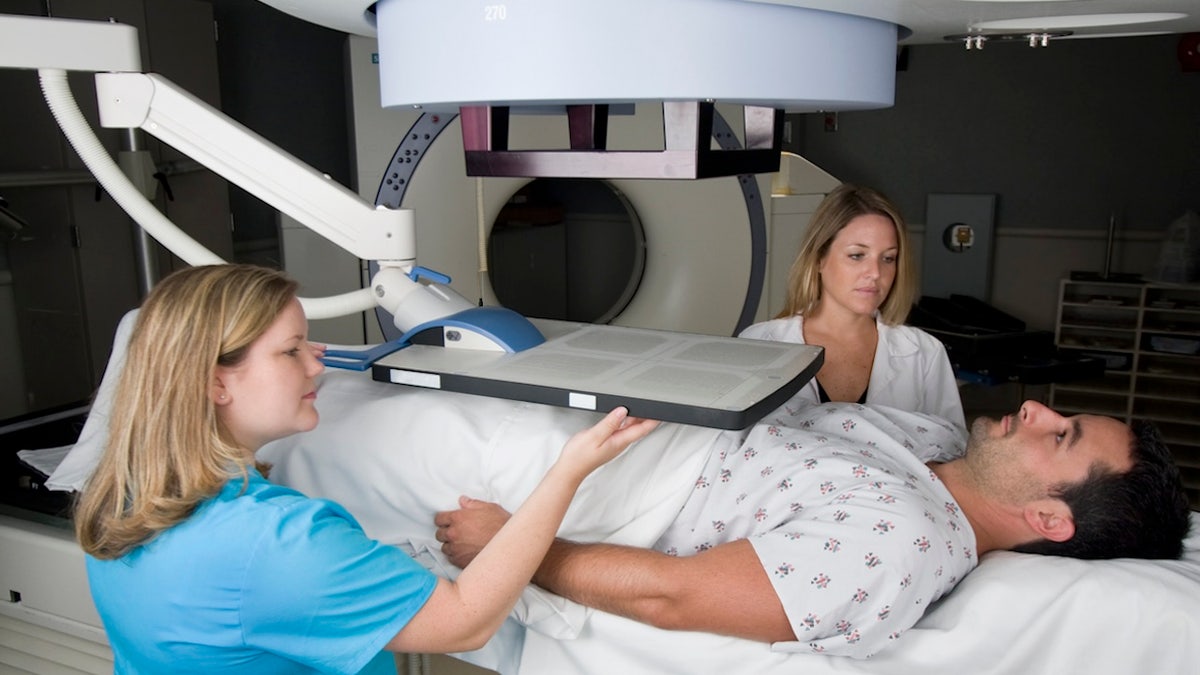Young Americans at higher risk of 17 cancers
Fox News senior medical analyst Dr. Marc Siegel on what is behind increased cancer risk for younger people and suggests natural alternatives to lose weight over Ozempic.
Certain types of cancers are more prevalent among Gen X and millennials, according to a new study led by the American Cancer Society (ACS).
The study, published in the journal The Lancet Public Health, analyzed data from over 23 million patients who were diagnosed with 34 different types of cancer over two decades.
The patients ranged in age from 25 to 84, representing multiple generations.
Researchers found that the prevalence of small intestine cancer, kidney cancer and pancreatic cancer was two to three times higher in those born in 1990 than those born in 1955 for both males and females, and for liver cancer in females, according to an ACS press release.
Rates were also higher among younger groups for breast cancer (estrogen-receptor positive), uterine cancer, colorectal cancer, non-cardia gastric cancer, gallbladder cancer, ovarian cancer, testicular cancer, anal cancer in males and Kaposi sarcoma in males, the study found.

Certain types of cancers are more prevalent among Gen X and millennials, according to a new study led by the American Cancer Society. (iStock)
Other cancers that were more prevalent in younger groups included myeloma, leukemia, cardia gastric cancer, and non-HPV-associated oropharyngeal cancer (in women).
ASPIRIN MAY BE LINKED TO LOWER RISK OF COLORECTAL CANCER, NEW STUDY SUGGESTS
Death rates also rose among younger groups for liver cancer (females), gallbladder cancer, uterine cancer, testicular cancer and colorectal cancer.
"These findings add to growing evidence of increased cancer risk in post-baby boomer generations, expanding on previous findings of early-onset colorectal cancer and a few obesity-associated cancers to encompass a broader range of cancer types," said Dr. Hyuna Sung, lead author of the study and a senior principal scientist of surveillance and health equity science at the American Cancer Society, in the ACS release.

The incidence of cancer among people under age 50 around the world is projected to increase by 31% by 2030, studies have shown. (iStock)
"Birth cohorts, groups of people classified by their birth year, share unique social, economic, political and climate environments, which affect their exposure to cancer risk factors during their crucial developmental years."
While researchers have identified some cancer trends associated with certain age groups, they don’t yet have a clear explanation for why these rates are rising, Sung added.
ARTIFICIAL INTELLIGENCE DETECTS CANCER WITH 25% GREATER ACCURACY THAN DOCTORS IN UCLA STUDY
Cancer has historically been associated with aging, yet doctors have seen an "alarming trend" of surging cases among those under 50 years of age, according to Edward S. Kim, M.D., the physician-in-chief of City of Hope Orange County and vice physician-in-chief of City of Hope National Medical Center in California.
"It is vital that we identify the reasons behind this trend."
"This latest trend indicating increases in early onset cancer is a paradigm shift," Kim, who was not involved in the study, told Fox News Digital via email.
"It is vital that we identify the reasons behind this trend, educate the public, advance prevention and early diagnosis, and develop more effective treatments."

While researchers have identified some cancer trends associated with certain age groups, they don’t yet have a clear explanation for why these rates are rising, a researcher said. (iStock)
There is "considerable evidence" pointing to environmental causes of early-onset cancers, according to Kim.
"We cannot deny that an extensive range of environmental factors have rapidly transformed in developed countries since the mid-20th century," he said.
FDA APPROVES NEW BLOOD TEST FOR COLON CANCER SCREENING: ‘EARLY DETECTION IS CRITICAL’
Tracy E. Crane, Ph.D., registered dietitian and co-lead of the Cancer Control Program at Sylvester Comprehensive Cancer Center, part of University of Miami Health System, said the reasons for the rise in cancer cases among young adults are "complex, multifactored and not well understood."
"The increases are likely due to lifestyle factors, such as excess body weight, lack of exercise and poor diets, as well as environmental factors such as air, food and water quality," she told Fox News Digital.
Ways to reduce risk
Modifications to diet and lifestyle could make a substantial impact — particularly when implemented in youth and early adulthood, according to Kim.
"Caring for our gut’s microbiome — the internal mechanism responsible for absorption of vitamins, regulation of the immune system, and assistance with food digestion – is essential," he said.

Embracing a healthier lifestyle has been linked to reduced cancer rates, experts say. (iStock)
To ensure a healthy microbiome, the doctor recommends avoiding ultra-processed foods, exercising to prevent obesity, and avoiding smoking and alcohol consumption.
It is also important for health care providers to make cancer screening options more accessible for younger people, Kim said.
CLICK HERE TO SIGN UP FOR OUR HEALTH NEWSLETTER
"All too often, primary care physicians may not recommend early screenings, because cancer has traditionally been associated with older ages and the screening guidelines have focused on age-based strategies," he said.
CLICK HERE TO GET THE FOX NEWS APP
"Expanding cancer research efforts focused on younger individuals is another critical area for improvement," Kim added.

"Expanding cancer research efforts focused on younger individuals is another critical area for improvement," an oncologist said. (iStock)
Crane agreed that lifestyle modifications can mitigate the risk.
"Make small behavior changes each day, like adding a salad or serving of fruits or vegetables, walking further across the parking lot, or taking the stairs," she advised.
"When you focus on small changes throughout the day, these start to add up until you look back and realize you are eating better and moving your body more with simple changes."
CANCER SCREENINGS: HERE ARE 5 TYPES AND CRITICAL INFORMATION TO KNOW ABOUT EACH
The expert also recommends avoiding tobacco use, applying sunscreen to protect against harmful UV rays, and staying up to date on cancer screenings and vaccinations.
The ACS also calls for access to "affordable, comprehensive health insurance" for younger generations to increase screening rates.
The incidence of cancer among people under age 50 around the world is projected to increase by 31% by 2030, studies have shown.

Incorporating more exercise is one way to help keep cancer at bay, experts say. (iStock)
"There is an epidemic of young people being diagnosed with cancer occurring right in front of us, and unless we implement some urgent interventions, I fear we will continue to observe more young people with cancer over the next decade," Kim said.
"We cannot wait that long."
For more Health articles, visit www.foxnews/health
Fox News Digital reached out to the ACS researchers for additional comment.











































